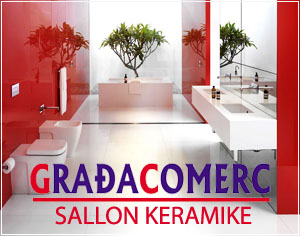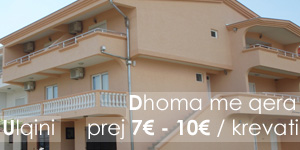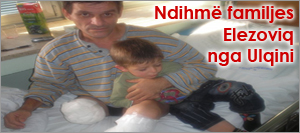Russians prompt boom in Montenegro

Russian money is transforming parts of Montenegro |
But Montenegro keeps another record, it gets more foreign investment per capita than any other country in Europe, well over $1,000 (£515) for each of its 650,000 people. Much of it comes from Russia.
Step off the plane in the Montenegrin capital, Podgorica, and the first thing you see is a billboard in Russian: “Come where they like you!” it says invitingly.
It is just one of many such adverts aimed at the rich Russians flocking to this small Slavic nation, which some are already calling Moscow-on-Sea.
Building boom
The visitors from the cold are changing the media scene.
There is a weekly news programme in Russian on a local TV station and a glossy monthly magazine, both produced by three young professionals from Moscow.
They came to Montenegro on holiday and decided to make it their home – and their business.

Young Russians are making inroads on Montenegro’s media scene |
One of them, Alexander Bespartochnyy, told me with a disarming smile, “the adverts are aggressive, but the people are not.”
Yet just an hour’s drive from the capital, the Russian wave is leaving a big mark on Montenegro’s stunning scenery.
Wedged between craggy mountains and the glimmering Adriatic, the town of Budva is pockmarked with large cranes and building-sites almost everywhere you look.
Bang in the middle of town, a Russian-built hotel clad in black marble stands out amid traditional white houses.
Another Russian company is building the tallest hotel on the coast, a 16-storey luxury complex.
Oligarch inrush
Among those rumoured to be snapping up prime real estate here are Roman Abramovich, the billionaire owner of Chelsea football club, and the mayor of Moscow Yuri Luzhkov.
Ivan Golovkin is not mega-rich yet, but he is working on it. He has taken a year off from studying economics in Saint Petersburg to sell top of the range flats in Montenegro.

Are some Russians laundering dirty money? |
Complete with Italian bathroom fittings, swimming pool and underground parking, the average cost is well over half-a-million dollars.
Ivan’s clients are Russian businessmen.
“Several times people have tried to pay cash,” he says, “but we don’t work this way. We are very careful to check. It’s all clean money.”
Yet there is concern that in some cases the property boom may be a cover for turning dirty money into respectable profit, especially since Montenegro unilaterally adopted the euro in 2002.
The European Commission has repeatedly warned that money-laundering is a critical problem which has to be tackled if the country wants to move towards EU membership.
In a report late last year, the commission complains there is “no proper monitoring of financial transactions,” especially in real estate and inward investment, and “considerable room for corruption in land-use planning, construction and privatisation.”
Toxic worries
The report also calls on Montenegro to do more to protect the environment.
Once again, there is a Russian connection.
Not far from Podgorica there is a huge pond, its waters an ominous shade of red.
It collects the toxic waste from Montenegro’s biggest company, the Kap aluminium complex that accounts for 40% of the country’s exports.
Darko Pajovic, who heads the environmental group Green Home, showed me around a deserted village next to the plant.

Toxic waste from the Kap plant is collected in open ponds |
Its ruined walls have turned deep red too.
Strong winds blow the aluminium oxide dust across a valley which produces much of the country’s fruit and vegetables.
Two years ago, the plant was sold to Oleg Deripaska, Russia’s richest oligarch with close ties to the Kremlin.
In a statement for the BBC, the plant’s management explains that they are investing 30 million dollars in new equipment and technologies to cut dust and gas emissions by the end of the decade.
But Darko thinks that a western investor would be more sensitive about environmental protection and public opinion.
“Our government generally say they want to be part of the EU, but in practice it’s totally the opposite.”
Back in Podgorica, Petar Ivanovic, the director of the investment promotion agency, dismisses complaints about Russian investors as overly simplistic.
“This is business,” he says, “and if we create a more open system, we have a better chance to survive on a very competitive market and attract more and better investors.”
Montenegro is set to join the EU sooner or later.
But by the time it gets there, it may find out that its most valuable assets are controlled from Moscow.






